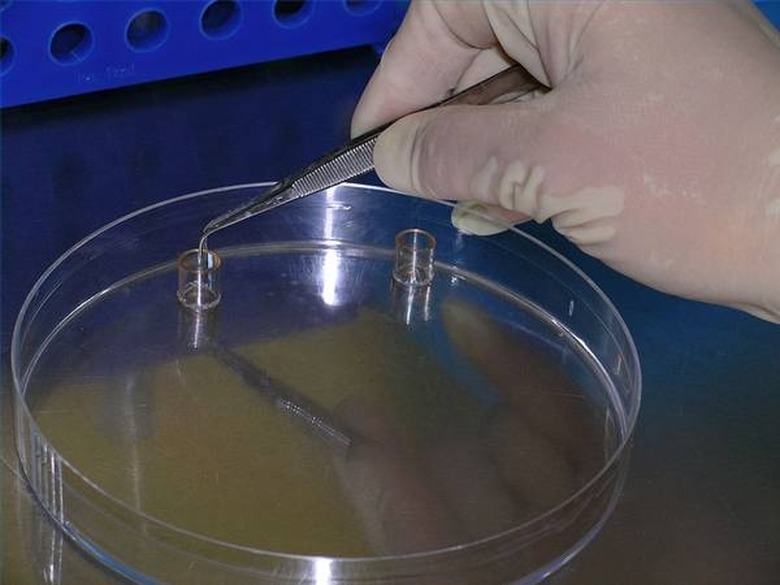What Is TA Cloning?
TA cloning is a simple and convenient method of subcloning polymerase chain reaction (PCR) products. "TA" is short for "thymine" and "adenine." This cloning technique utilizes the ability of thymine to hybridize to adenine in the presence of ligases. Restriction enzymes are not used, unlike the traditional subcloning method. Instead, PCR products are amplified using Taq polymerases enzymes.
Method
Method
The TA cloning method uses the terminal transferase activity of certain deoxyribonucleic acid overhang to each end of the PCR product.
A linearized cloning vector with single, three prime-T (3'-T) overhangs called a T-vector is used to clone this PCR product into a plasmid vector. The PCR product is mixed with this vector in high proportion.
DNA ligase (T4 ligase) is added to the mixture, which enables the two products to hybridize and join.
Advantages and Disadvantages
Advantages and Disadvantages
TA cloning is a convenient method of subcloning PCR products in the linearized vector, and it is much simpler and faster than traditional subcloning methods. Because this method does not use restriction enzymes, products with no restriction enzyme sites can be cloned.
A disadvantage is that TA cloning kits are very expensive and, hence, their use is limited. Besides, there is no directional cloning; so probability of cloning in an opposite direction is greater.
TA Cloning Kits
TA Cloning Kits
Several manufacturers sells TA cloning kits. Some are Invitrogen, QIAGEN and Premier Biosoft.
Cite This Article
MLA
Bansal, Nitu. "What Is TA Cloning?" sciencing.com, https://www.sciencing.com/ta-cloning-6888728/. 24 April 2017.
APA
Bansal, Nitu. (2017, April 24). What Is TA Cloning?. sciencing.com. Retrieved from https://www.sciencing.com/ta-cloning-6888728/
Chicago
Bansal, Nitu. What Is TA Cloning? last modified March 24, 2022. https://www.sciencing.com/ta-cloning-6888728/
